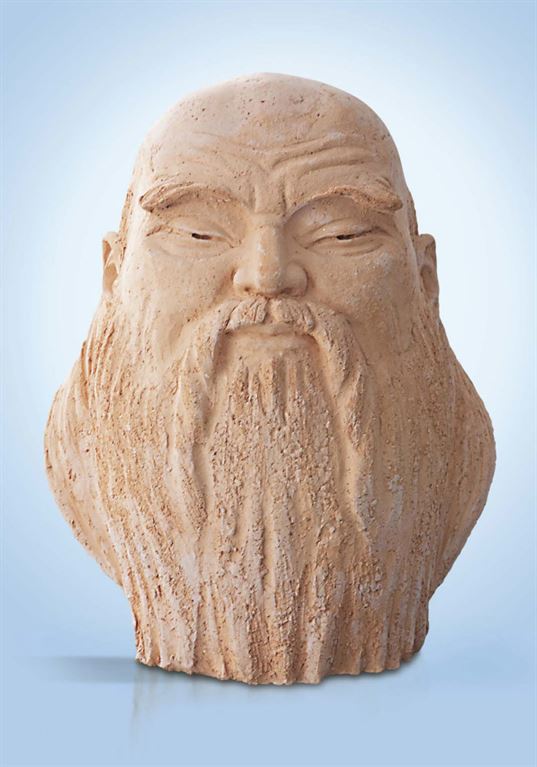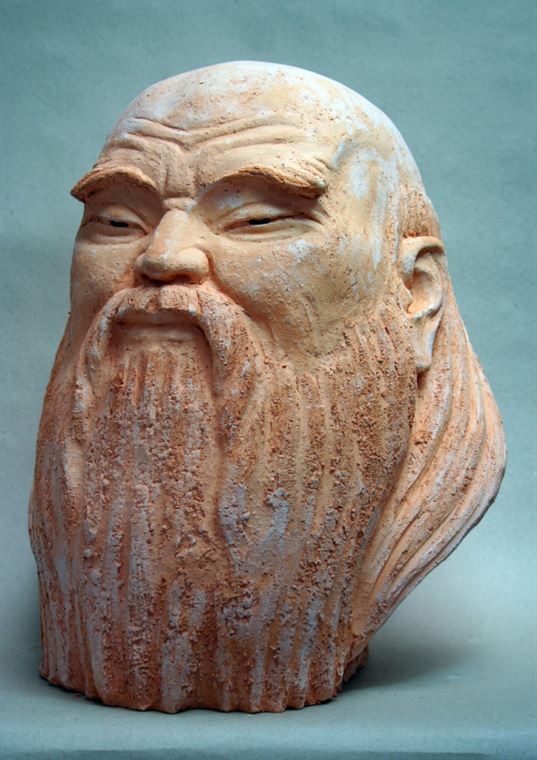Lao Tzu. 2006.
Author: Alexey Leonov
Material: Shamotte
Location: Private collection
Size: 52,5 х 45,5 х 42
Lao Tzu is a legendary ancient Chinese philosopher-notionalist (VI-V centuries BC). The founder of taoism – one of the currents of Chinese philosophical thought.
The basis of Lao Tzu’s philosophy is the concept of “tao” – a beginning that cannot be known and expressed in words, which is the unity of being and non-being. The word “tao” literally means “way” in Chinese. Tao is the universal Law and Absolute. Tao is the Truth and at the same time the Way to it. Tao is the beginning of the entire material world, the law and rules of life. It satiates everything in life, directs everything to development, including us. That is why for a person’s life, the real fulfillment of the will of the Tao (good power, perfection) is a refusal to gratify one’s desires in order to observe the universal law. You need to forget all the “right” answers, you need to give up the infinite craving for things and comfort, you need to forget about gain and vanity, you need to become yourself: a child and even a fool – pure and innocent, and then life will acquire harmony and meaning.
Lao Tzu taught wise rulers to instill in their people the desire to live simply, cleanly and naturally. The universe is a source of harmony, so everything in the world, from plants to humans, is wonderful in its natural state. Lao Tzu combined the concepts of earthly and extraterrestrial, natural and supernatural.
Taoism is the teaching about the world as of “involuntary naturalness.” This is the ability to feel and appreciate everything that exists in itself: how grass grows and withers, animals and birds are born and live, seasons change, etc. Human is a part of the whole. Taoist wisdom is to know the whole, not to confuse it with vanity, reason, violence, artificiality; merge with it, subjugate one’s heart to its harmony, acquire the fullness of being through “self-elimination.” This is where the idea of “inaction” comes from, but it doesn’t mean passivity and inaction. This is the abidance of “naturalness”, the rhythm of world processes, abidance of the Tao.
Lao Tzu said: “If you are a wise person – put yourself behind others and you will be in front of them. A wise person does not accumulate anything and does everything for people, gives everything to others. The Heavenly tao is to bring benefit and do no harm to all beings. The tao of a wise man is action without struggle.”





